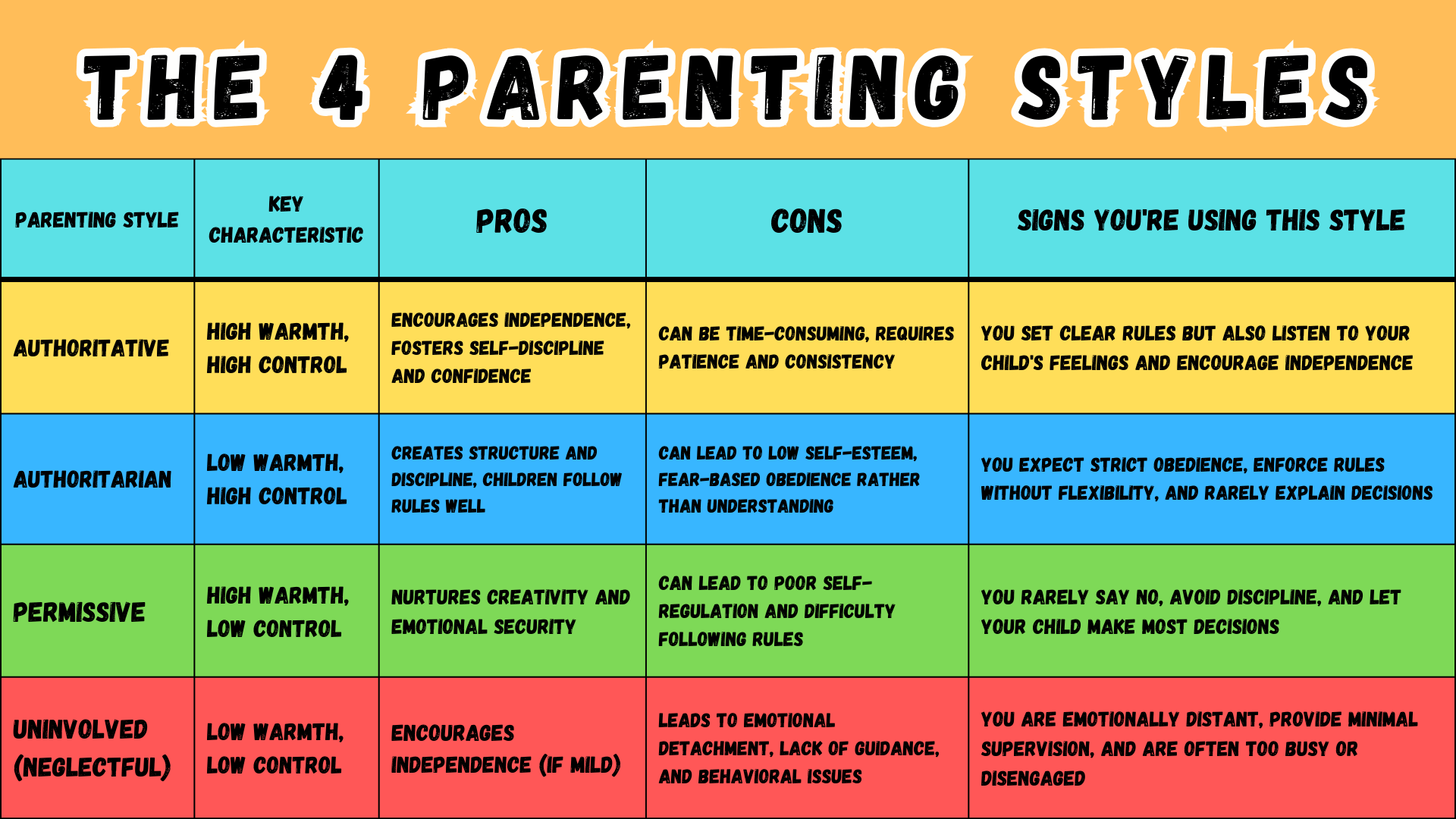
Bonding, Discipline & Education: Key Elements of Parenting

Parenting is an intricate journey that encompasses a myriad of challenges and rewards. The dynamics of bonding, discipline, and education serve as the cornerstone of healthy child development. Understanding these key elements can significantly enhance parenting practices, fostering strong relationships and encouraging positive behaviors in children. As parents, it's vital to realize the profound impact of these components on our children’s emotional, social, and academic success.
In today's fast-paced world, access to parenting information is crucial for navigating the complexities of raising children. With emerging research and evolving societal norms, parents are presented with new strategies and insights that can facilitate effective parenting. This article delves into the essential aspects of parenting—examining the importance of bonding, the role of discipline as a growth tool, and the vital contribution of education in shaping children’s futures.
- The Importance of Bonding in Parenting
- Understanding Discipline: A Tool for Growth
- The Role of Education in Shaping Future Success
- The Interplay of Biological and Environmental Factors
- The Bidirectional Influence of Parents and Children
- Navigating Peer Relationships through Parenting
- Strategies for Effective Parenting
- Conclusion: Balancing Bonding, Discipline, and Education
The Importance of Bonding in Parenting
Bonding is a fundamental aspect of parenting that establishes the emotional connection between a parent and child. This connection is critical for a child’s emotional development and contributes significantly to their overall well-being. Strong bonds foster feelings of safety and security, which are essential for healthy mental and emotional growth. When children feel loved and secure, they are more likely to explore their environment, build friendships, and develop confidence in their abilities.
According to numerous studies, the quality of parent-child bonding significantly affects personality development. Children who experience consistent care and affection tend to have better emotional regulation skills and higher resilience in the face of challenges. The practice of responsive parenting, where parents recognize and meet their child's needs, cultivates this important bond and promotes healthier familial relationships.
Practical Strategies for Enhancing Bonding
- Quality Time: Engaging in regular activities that both parents and children enjoy can strengthen their connection. Whether it's playing games, reading together, or going for nature walks, these moments foster deep emotional ties.
- Active Listening: Encouraging open and honest communication helps children feel valued and understood. Parents should practice active listening by giving their full attention and responding thoughtfully to their child’s concerns.
- Consistent Affection: Simple gestures of love, such as hugs, praise, and words of encouragement, contribute to a child’s sense of belonging and safety.
Understanding Discipline: A Tool for Growth
Discipline is often misunderstood as merely punishment, but it is fundamentally a tool for growth. Effective discipline teaches children about boundaries, consequences, and personal responsibility, all of which are crucial for their development. Establishing rules and expectations fosters a structured environment where children can learn to make choices and understand the effects of their actions.
It is essential for parents to distinguish between **punishment** and **discipline**. While punishment aims to eliminate undesirable behavior, discipline focuses on teaching. For instance, guiding a child to reflect on their behavior after a mistake empowers them to learn from the experience rather than instilling fear of consequences.
Positive Discipline Techniques
- Setting Clear Expectations: Clearly communicating rules and the reasons behind them helps children understand what is acceptable behavior.
- Time-Outs: This technique allows children to calm down and reflect on their actions while providing them time away from the situation.
- Natural Consequences: Letting children face natural consequences teaches them about the real-life implications of their choices, encouraging better decision-making in the future.
The Role of Education in Shaping Future Success
Education is a powerful instrument in shaping children’s futures. It equips them with knowledge, skills, and the ability to think critically and creatively. The influence of parenting on a child’s education cannot be overstated. Parents who actively engage in their child’s learning lay a strong foundation for academic success. This engagement can include helping with homework, discussing school activities, or fostering a love for reading.
Furthermore, parental involvement is linked to positive educational outcomes. Children who perceive their parents as invested in their education are more likely to develop aspirations for their own academic success. They gain the motivation to strive for excellence when they feel supported and encouraged by their parents.
Creating a Positive Learning Environment
- Encouraging Curiosity: Fostering an inquisitive mind through open-ended questions and exploration promotes a lifelong love of learning.
- Providing Resources: Access to books, educational games, and learning tools can enhance a child’s educational experience at home.
- Establishing Routines: Consistent study schedules and designated learning spaces reduce distractions and create a productive atmosphere for learning.
The Interplay of Biological and Environmental Factors
Parenting is not just about nurturing; it also involves understanding the complex interplay between biological and environmental factors. Research has revealed that both genetics and the environment contribute to a child's overall development. While children may inherit certain personality traits from their biological parents, the influence of the environment created by adoptive or parental figures is equally important in shaping behaviors and intelligence.
Parents play a crucial role in providing experiences that nurture healthy development. This dual influence highlights the necessity for parents to be aware of both their child's innate predispositions and the environmental factors they can control. For instance, parents can encourage their innate talents through exposure to various activities that resonate with the child's interests.
The Bidirectional Influence of Parents and Children
The relationship between parents and children is not one-directional; it is bidirectional. Understanding that children’s behaviors and personalities can also influence parental approaches is vital. For instance, a child who exhibits a strong interest in sports may lead parents to become more active and engaged in those activities. Conversely, a parent’s expectations can contribute to a child's socialization.
This reciprocal influence emphasizes the importance of adaptability in parenting. Being responsive to children's needs and interests promotes a harmonious relationship that nurtures mutual growth. It's essential for parents to remain aware of their child’s evolving personality and adapt their parenting styles accordingly.
In today's interconnected world, peer relationships wield significant influence over children's social development. As children engage with their peers, they learn social cues, communication skills, and the importance of collaboration. Parents play a critical role in guiding their children through peer interactions, helping them to navigate both positive and negative experiences.
Effective parenting strategies can foster healthy peer relationships. Open communication about friendships, potential conflicts, and emotional well-being equips children with the tools to manage their interactions while building their social skills. Moreover, teaching children about empathy and respect lays the groundwork for enduring and supportive friendships.
Supporting Healthy Peer Interactions
- Encouraging Diversity: Introducing children to diverse groups of peers helps them appreciate different perspectives and encourages inclusiveness.
- Modeling Conflict Resolution: Parents should demonstrate healthy ways to resolve conflicts, providing children with a framework to manage their own disputes.
- Promoting Team Activities: Involvement in team sports or group activities allows children to develop collaboration skills and builds camaraderie.
Strategies for Effective Parenting
Effective parenting involves a blend of strategies that intertwine bonding, discipline, and education. Each family is unique, and there's no one-size-fits-all approach. The key lies in adjusting strategies according to the child’s needs, personality, and developmental stage. Here are some effective strategies that parents can consider:
- Be Consistent: Consistency in rules and responses cultivates predictability, which is crucial for children’s security.
- Encourage Independence: Gradually allowing children to make their own choices fosters responsibility and confidence.
- Stay Informed: Keeping up with the latest parenting information and research can provide insights into best practices.
- Practice Self-Care: Parents must prioritize their well-being, as a healthy parent contributes to a healthy family dynamic.
Conclusion: Balancing Bonding, Discipline, and Education
The journey of parenting is complex, yet incredibly rewarding. Balancing bonding, discipline, and education forms the backbone of effective parenting. As we strive to nurture our children, it is essential to recognize the profound impact of our actions and the environment we create. Through strong relationships, appropriate guidance, and fostering a love for learning, parents can greatly influence their children’s success and happiness.
Staying informed with parenting information and adapting our practices to the unique needs of our children ensures that we are equipped to guide them effectively. The interplay between bonding and discipline, paired with a solid educational foundation, reveals the comprehensive approach required in modern parenting. Ultimately, nurturing our children today means preparing them for a bright and successful tomorrow.
Did you find this article helpful? Bonding, Discipline & Education: Key Elements of Parenting See more here Education.
Leave a Reply






Related posts